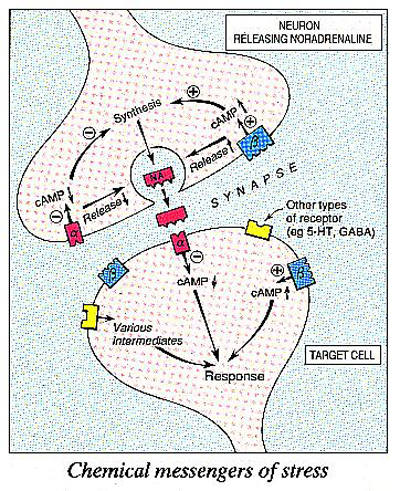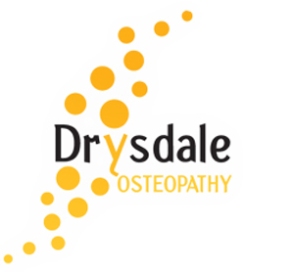Category: Stress
Is fasting a free health fix – or is it just a fad? | Life and style | The Guardian
Restricting the amount you eat is said to fight disease, extend lifespan and improve wellbeing. As well as dieters, people with diabetes and MS could benefit
Source: Is fasting a free health fix – or is it just a fad? | Life and style | The Guardian
Buteyko Breathing Presentation
Mindfulness Based Stress Reduction “Body Scan”
Mindfulness Stress Reduction And Healing by Jon Kabbat-Zinn
Mindfulness Based Stress Reduction courses are available in Glasgow, please follow these links:
http://ksdglasgow.org.uk/index/8-week-mindfulness-training
Gut Instincts & your second Brain
 When it comes to your moods, decisions and behaviour, the brain in your head is not the only one doing the thinking
When it comes to your moods, decisions and behaviour, the brain in your head is not the only one doing the thinking
IT’S been a tough morning. You were late for work, missed a crucial meeting and now your boss is mad at you. Come lunchtime you walk straight past the salad bar and head for the stodge. You can’t help yourself – at times of stress the brain encourages us to seek out comfort foods. That much is well known. What you probably don’t know, though, is that the real culprit may not be the brain in your skull but your other brain.
Yes, that’s right, your other brain. Your body contains a separate nervous system that is so complex it has been dubbed the second brain. It comprises an estimated 500 million neurons – about five times as many as in the brain of a rat – and is around 9 metres long, stretching from your oesophagus to your anus. It is this brain that could be responsible for your craving under stress for crisps, chocolate and cookies.
Embedded in the wall of the gut, the enteric nervous system (ENS) has long been known to control digestion. Now it seems it also plays an important role in our physical and mental well-being. It can work both independently of and in conjunction with the brain in your head and, although you are not conscious of your gut “thinking”, the ENS helps you sense environmental threats, and then influences your response. “A lot of the information that the gut sends to the brain affects well-being, and doesn’t even come to consciousness,” says Michael Gershon at Columbia-Presbyterian Medical Center, New York. Continue reading Gut Instincts & your second Brain
Exercise – Probably the best Medicine of all
 From dementia and diabetes to high blood pressure – no pill protects us against ill health like exercise does.
From dementia and diabetes to high blood pressure – no pill protects us against ill health like exercise does.
A plethora of recent studies shows that exercise protects us from heart attacks, strokes, diabetes, obesity, cancer, Alzheimer’s disease and depression. It even boosts memory. And it has the potential to prevent more premature deaths than any other single treatment, with none of the side effects of actual medication. “It’s a wonder drug,” says Erik Richter, a diabetes researcher at the University of Copenhagen, Denmark. “There’s probably not a single organ in the body that’s unaffected by it.”
Throughout evolution, humans have been active. Our ancestors chased prey as hunter-gatherers and fled from predators. More recently, they laboured on farms and in factories. But the decline of agricultural and industrial labour, plus the invention of the car, a multitude of labour-saving devices and – most perniciously – TV, computers and video games, mean we’ve all ground to a sudden and catastrophic standstill.
“We were built to be active, but the way our environment has changed and the way we live our lives has led us to become inactive,” says Christopher Hughes, senior lecturer in sport and exercise medicine at Queen Mary, University of London. Continue reading Exercise – Probably the best Medicine of all
Chronic Hidden Hyperventilation – A 21st Century Epidemic ?
This video will explain the importance of a widespread health problem in the West that is rarely diagnosed and even when it is recognised, is usually not helped or guidance given to the patient. The subject is chronic hidden hyperventilation (CHHV). CHHV is explained, its origins, its impact on every disease, how it can be reduced, why there has been insufficient clinical research and how the Buteyko Method offers a practical solution.
Why stress gets on your nerves
 MOST PEOPLE would agree that certain events in their life, such as bereavement, changing jobs, examinations, or even rush-hour travel in big cities, are stressful. We try to avoid stress, but if we cannot, we must try to adapt to it. This adaptation is sometimes referred to as ‘toughening up’. Although stress is difficult to define, we know that both avoidance and toughening up are crucial ways of coping with it.
MOST PEOPLE would agree that certain events in their life, such as bereavement, changing jobs, examinations, or even rush-hour travel in big cities, are stressful. We try to avoid stress, but if we cannot, we must try to adapt to it. This adaptation is sometimes referred to as ‘toughening up’. Although stress is difficult to define, we know that both avoidance and toughening up are crucial ways of coping with it.
When we cannot cope, stress can lead to irritability and fatigue, and other more serious disorders, such as gastric ulcers, cardiovascular disease, anxiety and depression. Yet not everyone subjected to severe stress suffers from a heart attack or a bout of depression: some individuals are much more vulnerable than others. Many neuroscientists now suspect that the difference in the ability to cope may lie in biochemical changes in the brain involved in the process of adaptation to stress.

